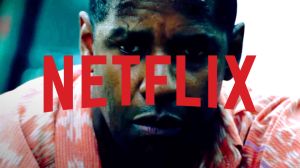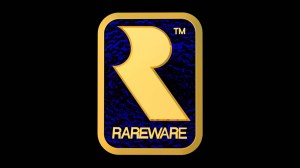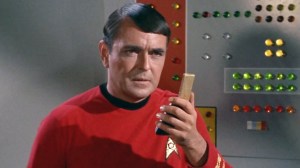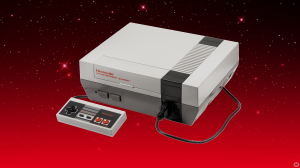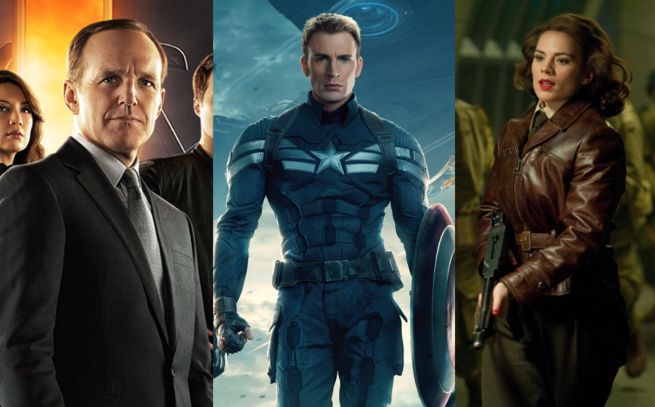
How things can change within a year. When Agents of S.H.I.E.L.D. premiered last September, fans and casual viewers alike had no idea just how important Marvel Studios’ first live-action television show would be to the greater Marvel tapestry. But now, the program has ties to one of Marvel’s most critically lauded films, has fed new characters into the publishing line, and—most importantly—has attracted massive audience that’s eager the season two premiere, tonight. A big part of that growth is Jeph Loeb, the veteran comics writer-turned Marvel Studios Head of Television. Charged with incorporating the world of The Avengers and Guardians of the Galaxy into the realm of TV, Loeb helps expand the Marvel Cinematic Universe with each new show he produces. It’s a busy job. Here, Loeb reflects on the greatest lessons and rewards he’s gained from Marvel’s first TV series, explains how he fits within the greater Marvel structure, and teases the thematic makeup of the first Netflix series, Daredevil.
Videos by ComicBook.com
Thanks for taking the time to chat, Jeph. Going into Agents of S.H.I.E.L.D.’s second season, what lessons are you trying to bring with you from the show’s first season?
We try to learn from every episode to make a better show, and hope most folks like it. Going back to the days of writing comics and television and movies, you just do the best you can, and hope people like it. Clearly, our audience responded majorly to the world of S.H.I.E.L.D. after “Captain America: The Winter Soldier.” I’m sure they were very curious to find out how S.H.I.E.L.D. was destroyed in “Winter Soldier”—spoiler alert—and how we were going to continue the show, since we couldn’t call it “Agents of Nothing.” So, that’s where we’re starting. The urgency and momentum with which we ended last season is the beginning of this season. So that part is fantastic and fun.
When we were doing press a year ago, every single person asked us: “Is Hulk Going to be in the show? Is Iron Man going to be in the show? Is Captain America going to be in the show? Even though we had a rather healthy ad campaign that was built around “Not All Heroes are Super.” But, people want what they want. And what’s fantastic about this year is that everyone’s asking us “Is Ward redeemable? Who’s Skye’s father? Why is Colson writing that stuff on the wall?” And towards that end, my answer is “Mission Accomplished.” That’s the real victory. Television is all about character, and making sure that your audience is invested in your people. We’re never going to be able to have the gigantic spectacle of one of our Marvel films, and for that matter we’re not going to be able to have the Hulk or Iron Man come by. If were going to be able to deliver a show that feels like Marvel, we need to get our audience invested in Coulson and his team. And it really feels like that’s where we’re at, and we want to continue to be a show, as it is with Agent Ward, that the audience after watching the episode says, “Wow, I didn’t see that coming.” That would be amazing.
With the Agent Carter show, you’re now building a universe within the specific medium of television. What is the difference between building a Television universe, as opposed to a cinematic or published one? What is rewarding and challenging in building a TV-minded world?
Well, make no mistake about it. We’re in the Marvel Cinematic Universe. And that starts with the fact that our lead, Agent Coulson, played so wonderfully by Clark Gregg, was the backbone of the first wave of Marvel movies. Whatever it is that we’re building, it is around the framework of some of the most successful films of all time. I’ll take that any day. This year particularly, as we’re venturing on with Agent Carter, which also came directly from the movies and the One-Shot, our relationship with Marvel Studios, and particularly Kevin Feige, has never been better. It’s exciting. It’s fun. Tying into the films and tying into the stories that they’re creating, and that we’re creating, is entirely unique. There isn’t any other company that is able to do what it is we’re doing. We’re incredibly lucky. Never in the history of television, if you can believe that, has there been a show where its mythology was forever changed by the actions of something that happened in the major motion picture, while the show was going on at the same time. The crossover into “Winter Soldier” and back out into our show—and it still continues to affect our show—is unprecedented. That’s the kind of thing that we can do at Marvel that nobody else can do.
What is your relationship like with the film’s directors, and other people at Marvel studios like Joss Whedon? How closely do you all keep in touch so that their developments and your developments influence one another?
Our relationship is with the studio itself. Obviously, we have a very close relationship with Joss, as he is one of our creators and an executive producer on the show. Joss is very involved with all of the movies, so we’re very lucky to have him be part of the ongoing experience. In general, it’s a very good, one to one relationship between our team and the Marvel team at the studio. While people on the outside picture Marvel like we’re a giant octopus that’s devouring the universe (which by the way, we are [laughs]), we’re still a very small company, and we’re a company that’s very aware of every division and what we’re doing. So, if an idea comes out of the publishing division that they use in the movies, that we can then use in the television series, that can then be taken into the animated series and bounced over into video games, that’s fantastic. But I hesitate to use the word “synergy,” and would rather just think of us a small company. It’s easy for us to know what the other guy’s doing.
How has your relationship with Marvel publishing back east changed since you took the reins as Head of Television? How does one department affect the other at this point?
I have to give credit where credit is due—that’s largely due to the fact that Alan Fine and Dan Buckley and Joe Quesada are involved in all of the stories that everyone is telling. Whenever anything happens, we’re continually sharing and figuring out how we can take that as a springboard and use it in our world. And a lot of it, we know is happening. For example, we knew when we were making the pilot of S.H.I.E.L.D. that right around episode 16, it was all going to come crumbling down, and that HYDRA had infected it. What’s fun, if you go out and get season 1 on Blu-ray and DVD (and yes, that’s an unabashed plug), you can watch from the pilot-on, that there is a mystery of what is happening, and who all these people work for, and what their end game is. But, we couldn’t tell people during air-time that there’s a mystery, because it would be giving up all the secrets of Winter Soldier. We used to refer to it as the “H-Word” around the office. The “H-Word” was Hydra. And once you know it’s Hydra, and you go back and you watch the first 16 episodes, it’s so unbelievably clear. You sort of go “Wow, I didn’t even know!” The reason you didn’t know is because you didn’t know to look. That to me is one of the wonderful things about the way the season lays out—you can watch it all as one big graphic novel.
That’s an interesting way to look at production. Is that how you view and approach the structure of the seasons? As graphic novels?
Everyone looks at it with a different point of view. I chose to just describe it like that at this moment. But because we work in a comic book medium, it’s an easy way to for people to understand what it’s like to be able to tell a story in chapters that pays off into a much larger group.
So as S.H.I.E.L.D. keeps growing, what’s been the most rewarding payoff for you so far?
Getting to season two [laughs]. The reality is that we’re in this game in order to tell stories. But as part of the entertainment business, the audience has the opportunity to watch so many different things. There are like 110 dramas in some form of production of another going on right now. For us to come out of the end of the year as the number one show on Tuesday nights, and being able to find as large of an audience as we have on a network that’s not really known for this kind of show, that’s a big victory. For us to be with shows that are as well-known and well respected as Scandal and Grey’s Anatomy, to be in that company at ABC, that’s a huge victory for our television series.
That’s great to hear. Moving onto Daredevil, I was curious as to how you were approaching your first pure “superhero” show with capes and tights, as opposed to S.H.I.E.L.D. and Agent Carter, where the world of superheroes are explored on the periphery.
For us, it’s always about the man inside the suit. And whether that is Tony Stark, who literally and figuratively has no heart, and so he encases himself in iron so that he can better communicate with other people, or whether it is the story of Steve Rogers, who is continually being bullied, so he undergoes a program that will enable him to fight back against injustice and his life is changed irrevocably. Or, it is the story of a young boy who is blinded by an accident at a chemical spill, and then goes on and becomes the very thing that makes his father as proud as could be in being a lawyer, and also being something his father never wanted him to be, which is to solve problems with fists. That’s the story. If you’re invested in Matt, you’re invested in Daredevil. Otherwise what you have is just a story about a guy in a cape and a suit. That’s not particularly challenging to do. What makes Marvel interesting is the complications of the people who make the decision to do something with their gifts. One of the things that is very much Marvel is that, these people are living their lives, and then something happens. Their lives become interrupted by the gift. And then they have to make a choice as to what they want to do with it. They could go either way. One of the things that’s’ delightful about Matt Murdock is that he very much lives in the gray. He’s one step away from doing something that could be completely disastrous not only for himself, but for his friends, for his law practice, for all these things. That’s just he beginning of what we’ve sat down and talked to Drew Goddard about. He wrote the first two episodes, and he’s going to talk to our show runner, who has an incredible job, along with an extraordinary cast. I think people are going to be very surprised by where we go with Daredevil, and where we go with all the Netflix shows.
To close this out, what’s thing you’re most excited about for this upcoming season?
We’re thrilled that we start production shortly on Agent Carter, which will premiere early next year. Haley Atwell is a gigantic movie star who will explode on television, and has everything you’d want in a lead. She’s funny, she’s sexy, and she’s smart. And she kicks ass. The cast that’s around her, the incredible writers—and Chris Markus with Stephen McFeely, who both wrote Captain America: The First Avenger, The Winter Soldier, and the show’s pilot, helped break out the eight-episode order. Tara Butters and Michele Fazekas who are our show runners, along with Chris Dingess—it is an enormous task to try to put together a show that takes places in New York City in 1946, in terms of costumes and wardrobe and automobiles and the city itself. At the same time, we’re trying to tell a terrific, action-driven spy show that deals with the origins of S.H.I.E.L.D. We’re incredibly lucky to have Louis Esposito, who directed the one-shot, on board and directing the first episode. The Russo brothers are directing episodes two and three. It’s just so much fun everyday. I can’t wait to see that. And the biggest news is that S.H.I.E.L.D. is back. We just want everyone on the planet to watch the show.

